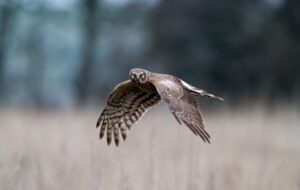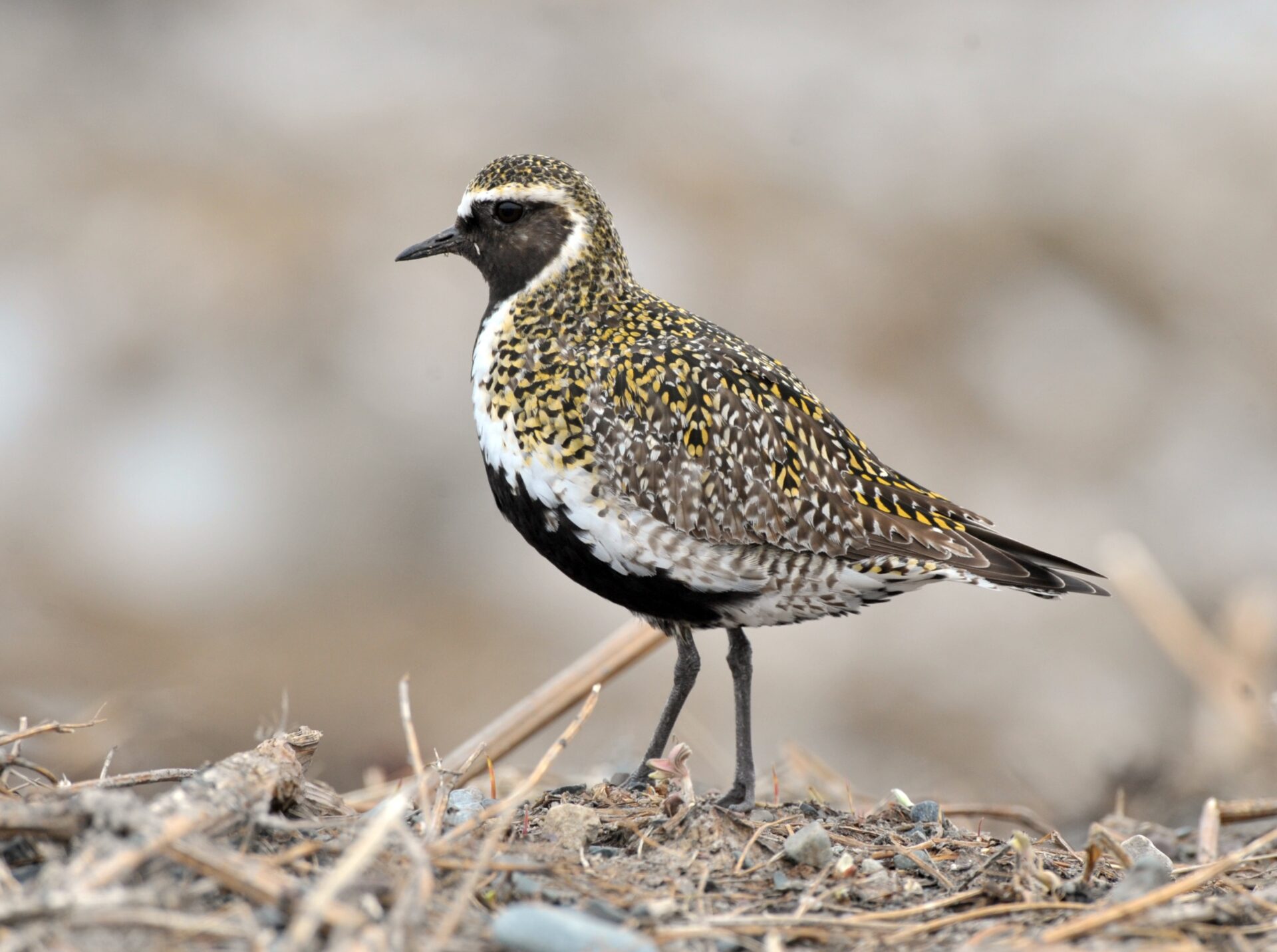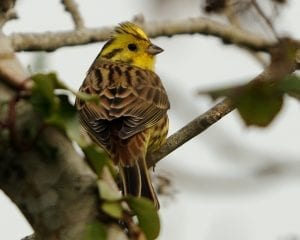BirdWatch Ireland is pleased that the rule for shallow cultivation of winter stubbles has been scrapped in the latest iteration of the Nitrates Action Programme. It is regrettable, however, that this decision was not made sooner, and particularly before farmers cultivated stubble grounds in 2025, leaving threatened bird species looking for other food supplies this winter. In the medium and long term, Ireland’s Common Agriculture Policy Strategic Plan and National Restoration Plan must incentivise farmers to provide sufficient quantity and quality of habitats to restore both wintering and breeding farmland bird populations.
The controversial winter stubble rule was introduced in 2022, despite vociferous opposition from BirdWatch Ireland on account of the risk of severe impacts to farmland birds over the winter months, when food supplies for many Red- and Amber-Listed Birds of Conservation Concern in Ireland are in short supply.
The stubble fields left after crops have been harvested often harbour spilled seeds, which seed-eating birds, such as the Yellowhammer and the Skylark, and rodents will consume during the cold winter. These small birds and mammals are prey species for other birds, including the Hen Harrier, a highly protected and increasingly rare bird of prey that is experiencing ongoing declines. In our submission to government at that time, we highlighted that 30 Red- or Amber-Listed Birds of Conservation in Ireland relied on winter stubbles for food.
Yellowhammer: one of the Irish bird species that is most dependent on winter stubble
(Photo: John Fox)
Nitrate pollution is a severe problem in Ireland and has to be addressed. It is having well-documented consequences for our waterways and threatens riverine bird species like Kingfisher, Dipper, Grey Wagtail and others. The shallow cultivation rule was introduced to address nitrate leaching from arable land, but without assessment of the impacts to threatened bird species known to forage on stubbles. Furthermore, the Natura Impact Statement of the Nitrates Action Programme in 2022 did not assess the impacts of the shallow cultivation of stubbles rule on Annex 1 Hen Harrier and Golden Plover or any other protected species, as is required under the Habitats Directive. BirdWatch Ireland raised its concerns about this with government.
The shallow cultivation rule was also not in line with known ecological requirements for Hen Harrier, especially juvenile birds, in the Hen Harrier Threat Response Plan, also published by government. In 2022, government charged Teagasc with researching the impact of a reduction in winter stubble after the rule had been brought in. This research is ongoing.

(Photo: Shay Connolly)
A 2023 study undertaken on 30 farms in an area of south Cork looked at the habitat associations of farmland birds, including on arable land. The study found that the most important field type for farmland birds over winter in terms of numbers (48%) and scale was winter stubble. It was on this basis that the decision was made by government to scrap the winter stubble rule
Oonagh Duggan, Head of Policy and Advocacy at BirdWatch Ireland, said:
“We welcome this decision to scrap the shallow cultivation of winter stubble rule in the Nitrates Action Programme. The rule was introduced in a knee-jerk reaction to address nitrate pollution, where it was stated that ‘all sectors had to play their part’, but there was really inadequate consideration, ecological assessment or mitigation of the impacts to least 30 bird species, many threatened, that forage on winter stubbles. The research on the risk of effects on farmland birds should have been commissioned first, before any changes were proposed for winter stubbles, and not after the fact. Nitrate pollution has to be addressed, but when trying to address one environmental problem, it makes no sense to create another one.
“The scrapping of the rule comes too late in the day to help threatened farmland birds this winter, however, as farmers will have already cultivated their fields. It was an irresponsible decision to mandate farmers to shallow-cultivate without adequate consideration of the effects on declining bird species. Ireland is in the midst of a biodiversity crisis and farmland birds represent the fastest declining group of birds in Ireland. Uncultivated and unsprayed stubble fields are extremely important for birds like Hen Harrier, Skylark and Yellowhammer, especially in the absence of diverse habitats on farmland. The shallow cultivation rule is one more threat to them.
“BirdWatch Ireland used every opportunity possible to advocate with officials and politicians at national and at EU level for the scrapping of this environmentally destructive rule. BirdWatch Ireland now calls on government to incentivise farmers appropriately to restore habitats on farmland, including assistance for stubble fields in Ireland’s next CAP Strategic Plan and National Restoration Plan, in order to halt and reverse the declines of Ireland’s farmland birds.”



